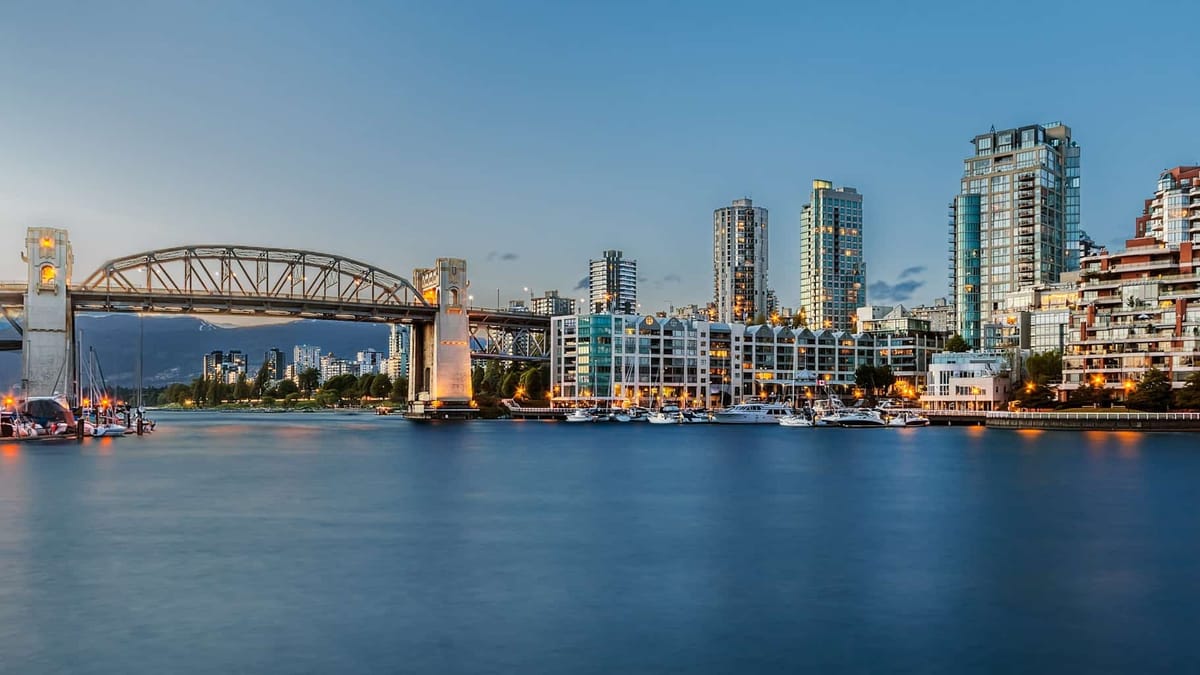
Summary: Climate action remains critically important, especially as we look at the long-term implications of COVID-19. The Vancouver Climate Emergency Action Plan has tangible, real-world benefits for Vancovuerites, including cleaner air, more space to have fun, and making it easier and faster to get around. It will influence the next generation of climate action plans throughout Canada and around the world. Most importantly, it can give us something to pin our hopes to.
Originally published in November of 2020, and later syndicated in Elevate.
Vancouver made a big decision last night by passing the Climate Emergency Action Plan, and I wanted to take a moment to write about just how big a moment that is.
Like so many of us, I’ve been in the coronavirus fog for months now. That initial adrenaline surge that came as more and more causes became activated and tried to tie together existing work and new solutions to address COVID19, as distances closed via online video conferencing, as the opportunity to work on innumerable new projects, all of that has faded.
As Tara Haelle wrote so memorably recently, “I’d soon describe in an emotional post in a social media group of professional colleagues, an ‘anxiety-tainted depression mixed with ennui that I can’t kick,’ along with a complete inability to concentrate.”
 ElementalTara Haelle
ElementalTara Haelle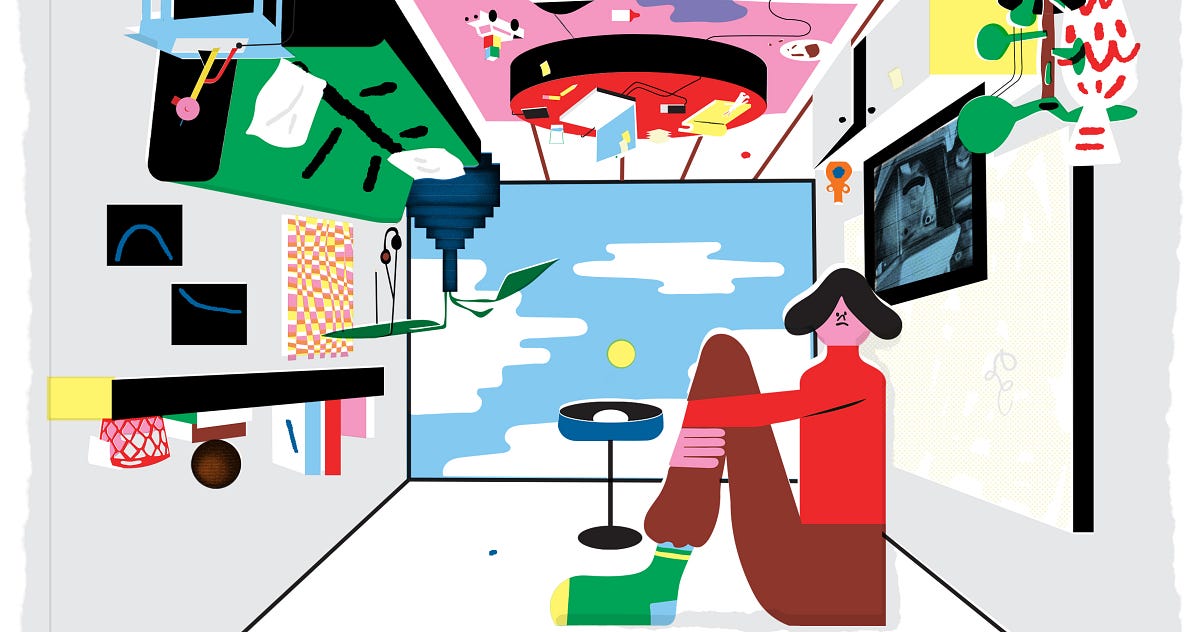
Which is another way of saying, me, and probably you, are exhausted. If you’re like me, and live in Vancouver or British Columbia, you’re exhausted especially because we’ve been had a snap provincial election, numerous big-picture decisions coming through City Council (including the Climate Emergency Action Plan, but we’ll get to that), and over the past few months, the frightening increase in COVID19 cases and the slow-motion disintegration of any semblance of control over the virus.
And if you’re elsewhere in the world, well, you know, there is plenty to grab your attention.
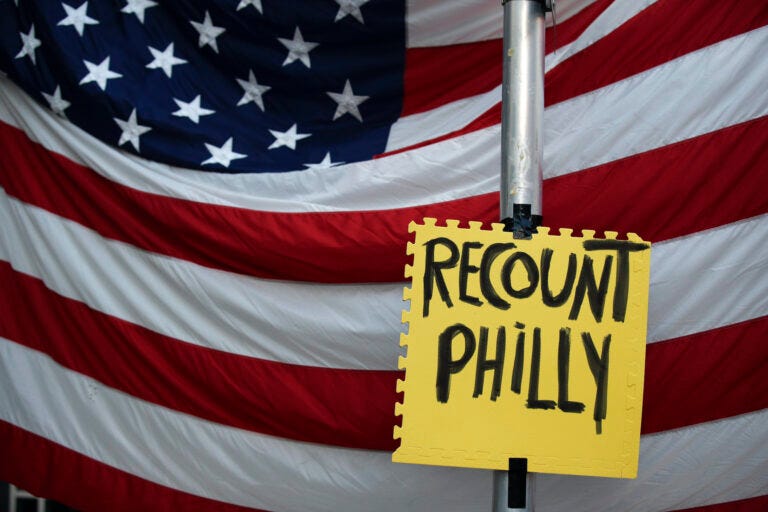
The sad truth — Climate change doesn’t care about our exhaustion
As has been the refrain of many folks working in climate change during all of this — the election(s), the pandemics, and pretty much everything else — climate change moves along no matter what else is on our minds.
On the one hand, that’s debilitating and exhausting in and of itself. Try as we might (and believe me, many try), we cannot work all of the time on even an issue as pressing as climate change. And then of course, we also live in a moment that is hardly singular in its pressing issues — Black Lives Matter, the ‘shesession’ of COVID19, the Opioid crisis, take your pick.
At the same time, the overarching nature of the climate crisis, even amidst the pandemic, means that there are opportunities to look for, as technocrats like to say, “co-benefits,” wherein addressing one problem can help us do so for another.
The innumerable, and at this point, somewhat repetitive, calls for a ‘Green Reset’ from the coronavirus, hit this home.
But I think this is what makes Vancouver City Council passing the Climate Emergency Action Plan so important — even with everything else going on, they still decided to move forward. And of course that was far from an easy decision to make. As one important person during the hearing on the plan memorably said, “why are we doing this now?”
The response to that, and to the plan in general, that a collection of youth organizations put together in a letter to Council was concise, and unimpeachably clear:
We have a vision of a liveable Vancouver for generations to come, and we will work with you to bring that vision to fruition.
 Google Docs
Google DocsAnother plan? So what.
I think there’s a very reasonable response to all of this that a plan like this is exciting for technocrats and insiders, but won’t necessarily transform anything for the average resident of the city. There’s some truth to that in that it won’t radically alter your life tomorrow — or perhaps even within a year or two, but it sets the groundwork for a better city than what we have now.
Digging into the details of the plan feels far colder and more technocratic than I am interested in at the moment, so, let me share for a moment what excites me most about the kind of city we could have, if we do this right:
A new era of buildings
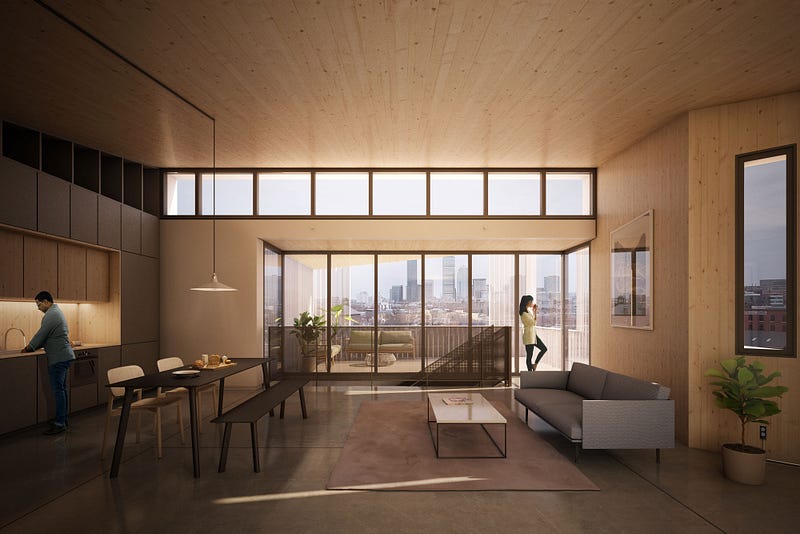
I think one of the mistakes we do in the climate community is to focus on the benefits of our actions at a global or some level of societal-scale, when in fact the benefits of the Action Plan’s work on buildings, for example, will be transformative in deeply personal ways. The ones I think about most are:
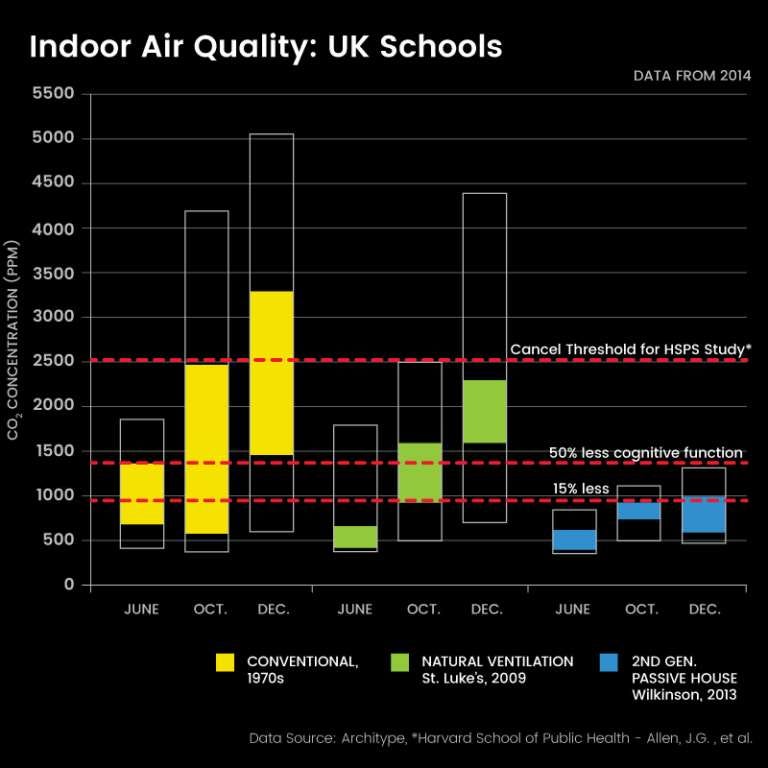
Cleaner, more comfortable homes, offices, and interiors — by focusing on reducing fossil fuel combustion in existing buildings, and electrifying most new buildings relatively soon, we will get cleaner air where we live and breathe. As a recent study found, recently built Passive House buildings (a high standard and voluntary certification of building design focused on energy efficiency and air quality) have shown how massively important good air filtration is, and how removing combustion (like natural gas, or fuel oil) and creating a high-quality ventilation system can increase health and cognitive functioning. Furthermore, as our climate warms, designing our new buildings and renovating our old ones to adapt to new temperatures and climate conditions means that many of our already old, failing buildings can be that much safer and more comfortable. The great news is, we already do this, and homes of this quality (Passive House, LEED, and otherwise)
More beautiful buildings — One of the most singularly transformative parts of the Action Plan’s is its focus on reducing the “embodied carbon” in new buildings, that is, changing the materials we use in buildings so that they either have no fossil fuels involved in their creation (like wood), or reducing that use of fossil fuels significantly (the goal if 40% on an average project by 2030). Again, what does this mean for you as a resident of Vancouver? More beautiful buildings. It means more wood being used, it means more elegant design as we try to avoid over-using materials. It means new and innovative ways of bringing together materials, like the Canadian-designed wood-concrete floor system.
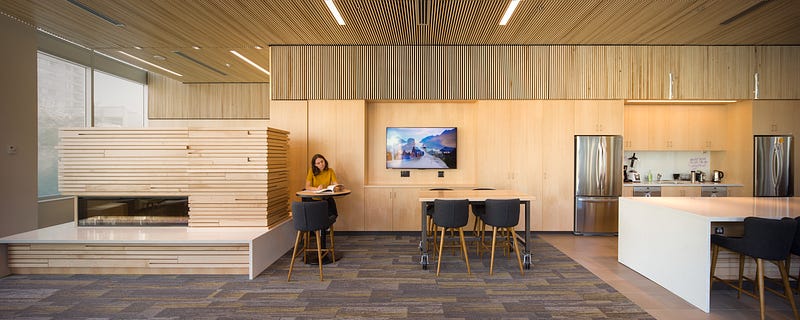
New ways to move
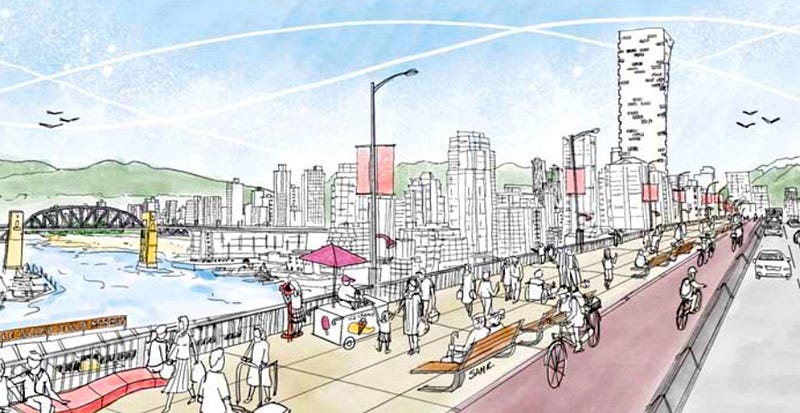
The transportation work in the Plan was easily its most controversial. Removing various advantages today associated with parking and studying (not implementing) a congestion pricing system for downtown Vancouver are massive cultural shifts for those of us who grew up perceiving that a car was an essential part of life and adulthood.
But, again, all of the talk of pricing and “mode shifting” is largely inaccessible and removes the genuine benefits of may yet move forward. Here’s what it really could mean for us:
Lobbyists, car dealers, & even some City Councillors are spreading misinformation about the #vanclimateemergency because they don’t want people to see the truth about how we spend money and allocate land.
— Abundant Transit BC (@abundanttransit) November 2, 2020
The truth is our status quo is unfair, expensive, and dangerous.
More space to enjoy our city — As transit advocates around the city were quick to remind us, cars use a lot of space in the city. The average car might use as much as 300x more public space every day than a person who walks. In tangible terms, that means fewer park areas, smaller sidewalks, and less space for those parklettes and streetside patios we all desperately need right now. If we “shift modes,” that is, if we’re able to help people (and yes, sometimes tell them) to walk, roll, bike, or take transit instead of driving on their own, then we make room for more of the stuff that we do like.
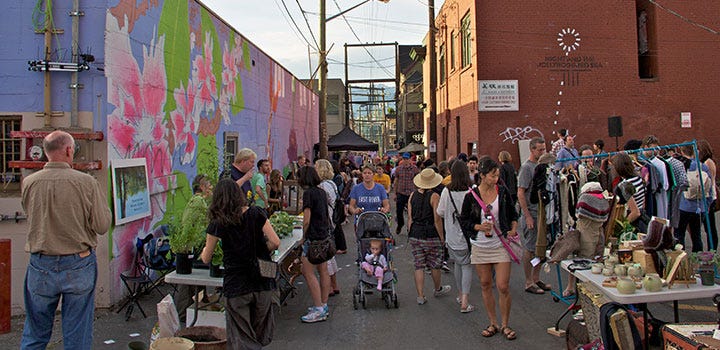
Quicker movement times — The big thing about congestion pricing (i.e., a toll system when you enter and leave certain areas of a city or region) is that it works. The case studies from London, Stockholm, Singapore and elsewhere show that people don’t like paying money to travel places. Sometimes they have to, and so they pay, but if they can save the money, and save the hassle, they will. What does this mean to the average resident? Fewer cars on the road, means it’s easier for those who need to get around.
Better transit — The details of the congestion pricing scheme will be developed over the next five years, but if an effective system does come together, it could massively transform transit in the region. People were very quick to get very angry about Vancouver “going it alone” on congestion pricing, and that the city might be “stealing” revenue from other cities. Disingenuousness of these arguments aside, since Vancouver, yes, gains both the benefits of workers coming downtown, but also all of the congestion negatives, the real play here, as I think Kenneth Chan nailed, is that this money must go to growing our transit system, ideally at a regional level. Vancouver might be the first ‘pilot zone,’ but as the recommendations of the Independent Mobility Pricing Commission said a few years ago, with revenues of $170 million to $290 million per year for a regional system, we could significantly scale up our transit options across the region, and give more and more people the transit that they deserve.
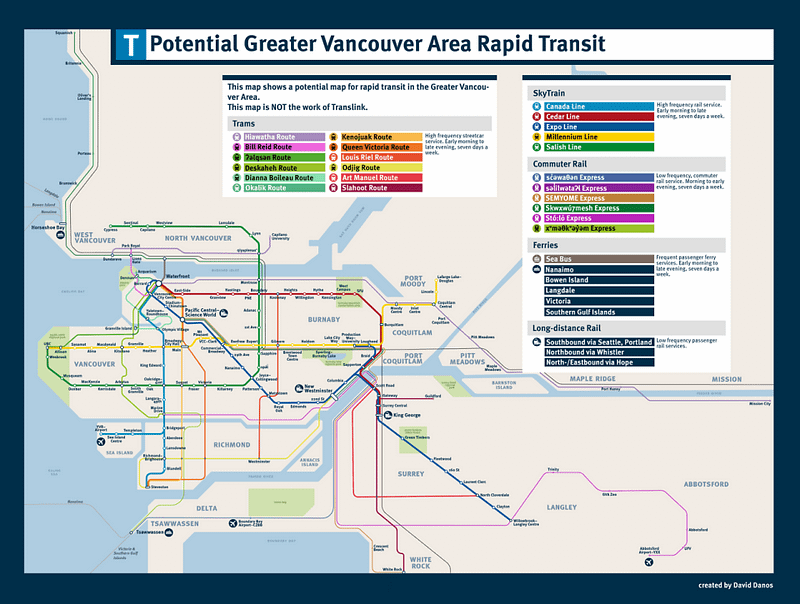
Now what?
There’s so much more I could say about what this plan is and some of the amazing things it envisions, but I’ll close with two ideas that, while more abstract, are very important parts of this moment to me.
Firstly, I want to remind everyone back to a very different time: back when I was doing my master’s thesis and looking at how cities worked together in global networks like the C40 Cities Climate Leadership Group, I had the pleasure of interviewing then-Councillor Andrea Reimer about how a small city like Vancouver had gotten involved in a major global network, given our relative size and importance (which is minimal, many of the detractors of this plan have noted). As I wrote then, based on her and others’ accounts:
“the City was not especially interested in international leadership prior to the invitation in 2012, focused as they were on battles with the national government. It was the inundation of international interest in Vancouver after the announcement of the Greenest City Action Plan that first sparked the idea that the City might purposefully leverage its international leadership to systematically and directly influence how other cities do climate policy.”
I’m not here to relitigate whether or not the Greenest City Action Plan, or the years under the Vision Party were successful. Greenest City had some incredible successes, but also by the logic of needing this climate emergency plan in the first place, it had many clear failures, as well. In my own, personal view, there’s still so much more to be done to harness the true transformative economic potential of this kind of work, but that’s a story for another time. What is important from all of this is that Reimer’s account, in my estimations, largely holds up. Vancouver’s plans and actions were widely followed and people, both within wonky climate policy circles, and also around the world. This isn’t due to some miracle of a particular party, a photogenic mayor, or insider dealings — it’s because the plan was so transformatively put together, so ambitious, and reframed a lot of the climate discourse so powerfully.
One of my favourite writers David Roberts of Vox, was tweeting about the release of the plan, and numerous others jumped in to add their piece about what it might mean for them.
Canada’s largest national newspaper, The Globe and Mail, even had a full editorial spread on the need for Canadian cities to embrace congestion pricing, sparked in part because of Vancouver’s bold moves.
 The Globe and MailThe Editorial Board
The Globe and MailThe Editorial Board
I am from Vancouver.
I love this place.
I am proud of our successes, and vocal about our failures — but I also know that this plan won’t change that many folks’ minds, and while it may move the dial on advancing some wonky policy work in different jurisdictions in Canada and around the world, I actually don’t think that that is it’s most important contribution.
For me, and I sincerely believe so many others around Vancouver (and via the text messages I received this morning, I believe elsewhere), I think this new wave of action gives us permission to hope.
After so many meaningless platitudes from every sector and political stripe, the work that has been done within and by this plan — by Councilors, staff, activists, community members, residents, businesses, and friends and allies from near and far — means we have something credible to hold onto once again. We have a vehicle that, for all its flaws, is charged up and can take us to newer, better places.
I hope to see you all there.
Sign up for George Patrick Richard Benson
Strategist, writer, and researcher.
No spam. Unsubscribe anytime.